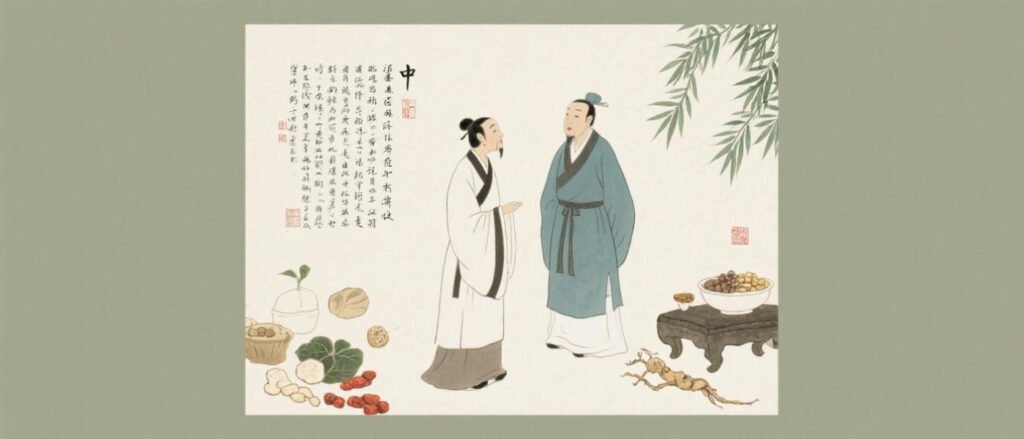Physician Guo Menghuai’s wife developed an illness due to prolonged emotional distress caused by financial hardship. During episodes, she exhibited the following symptoms:
- Fullness and tightness in the chest and upper abdomen
- Intense stomach pain
- Restlessness and inability to eat

Guo, a scholar who ran an elementary school for children, struggled to afford basic meals. Believing his wife’s condition stemmed from physical weakness, he attempted to nourish her with tonics—only to worsen her symptoms.
Upon examination, I observed:
- Strong pulse sensations at all six pulse positions (key diagnostic points in Traditional Chinese Medicine, TCM)
- Pronounced pulsation at the carotid artery’s renying pulse point (a critical diagnostic site in TCM)
I explained:
“This condition arises from qi stagnation (blocked energy flow) forming phlegm-dampness (abnormal fluid accumulation in TCM theory). Episodes trigger dizziness and exacerbate vomiting. Left untreated, the stomach imbalance will affect the spleen (responsible for nutrient transformation in TCM), potentially progressing to severe abdominal swelling (gu syndrome).”
At Guo’s request, I prescribed:
Xiangsha Pingchen Tang (a classical formula containing):
- Costus Root (Muxiang)
- Amomum Fruit (Sharen)
- Aged Tangerine Peel (Chenpi)
- Magnolia Bark (Houpo)
- Pinellia Tuber (Banxia)
- Poria Mushroom (Fuling)
- Licorice Root (Gancao)
Added ingredients:
- Rhubarb (Dahuang) to purge stagnation
- Immature Bitter Orange (Zhishi) to stimulate digestion
The patient defecated freely after two doses, with complete symptom resolution.

Contextual Notes:
- Xiangsha Pingchen Tang commonly addresses digestive disorders caused by phlegm-dampness.
- Rhubarb and Immature Bitter Orange enhance the formula’s purgative effects, exemplifying TCM’s “unblock the fu organs” therapeutic strategy.
- Gu syndrome refers to TCM pathologies involving abdominal distension and fluid retention.


Leave a Reply